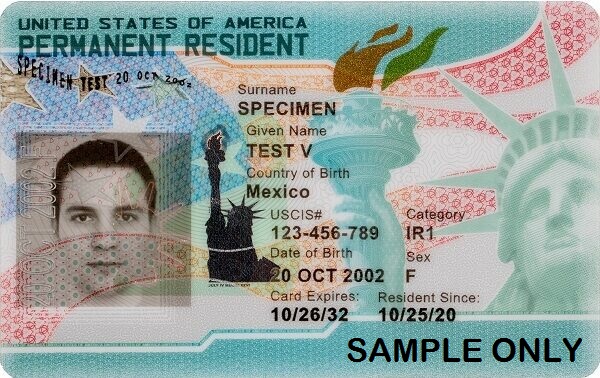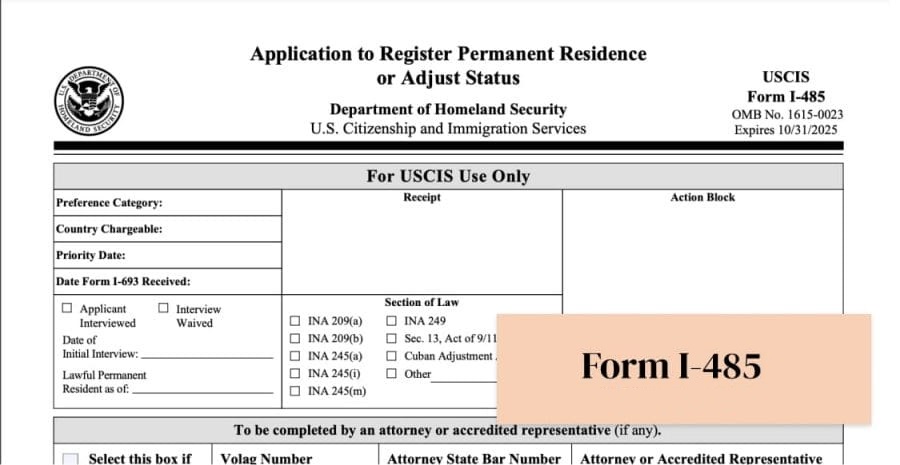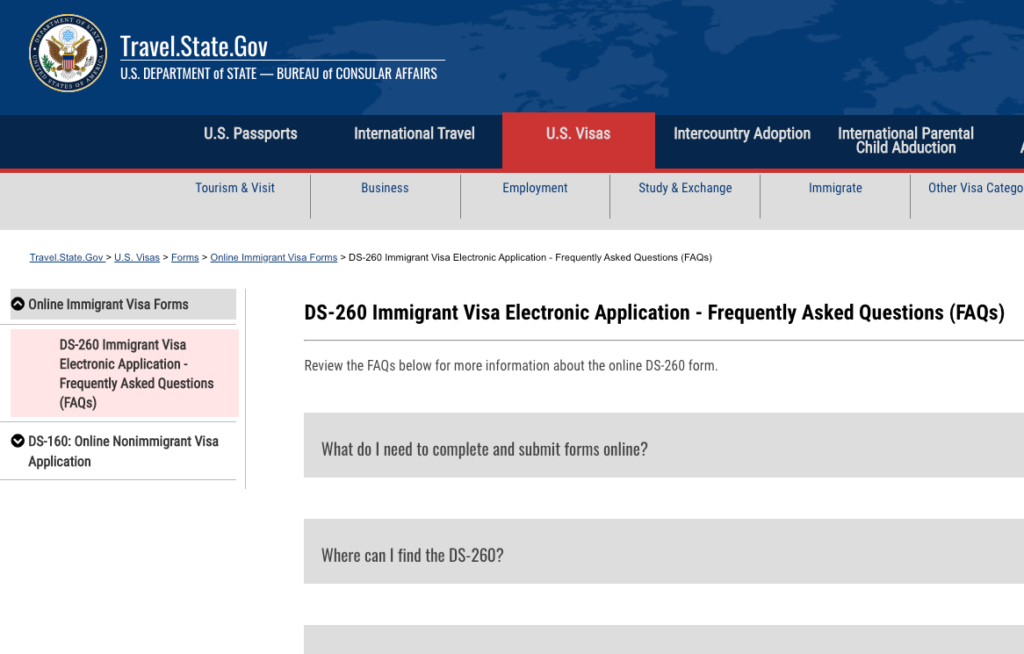The Green Card Explained
Let Assess Your Profile
Get discovered by 8,000+ employers & apply to jobs in a single click Get Assess Your Profile For Citizenship In Australia, Canada & New Zealand.
The timeline, cost, & types of green cards for U.S. permanent residence
How to get a U.S. green card through marriage

What is a green card?
A green card allows a non-U.S. citizen to gain permanent residence in the United States. A green card, also known as a permanent resident card, grants permanent resident status, which allows a non-citizen to live and work (lawfully) anywhere in the United States, and qualify for U.S. citizenship after three or five years.
Marriage-based green card timeline
How long does it take to get a green card for marriage?
The total processing time for a marriage-based green card averages 9-11 months, depending on whether you’re married to a U.S. citizen or a U.S. green card holder (lawful permanent resident). To help you understand wait times and processing times, Wimpacs has put together an in-depth guide detailing the processing times for your marriage green card application.
A note on processing times:
Wimpacs has teamed up with Track My Visa Now to bring you more up to date timing on I-129F wait times, and their current processing time is 6 months. This calculation is based on their latest analysis for Form I-129F applications filed today. Keep in mind this does not include the time from when your form is approved to your interview date, which differs based on your home country.
The Green Card Application
The green card application process will differ depending on if you are applying from within or outside the United States. There are two main green card application forms:
Green card application (from within the US): Form I-485 (Application to Adjust Status). This form is used by those who are already in the U.S. on a nonimmigrant visa, have been selected for a diversity visa, or are eligible through family or employment.

Green card application (from outside the US): Form DS-260 (Immigrant Visa Electronic Application). This form is used by those who are seeking an immigrant visa from abroad, either through family, employer sponsorship or through the diversity visa program.

Not sure which visa is right for you? Take our free assessment to get a customized plan.
Green card timeline
The processing time for a permanent resident card is anywhere from a few months to many years, depending on the type of green card you’re applying for and where you’re applying from. More precise estimates are provided below.
Applying from within the United States
For spouses and immediate relatives (parents and minor children) of U.S. citizens applying from within the United States through adjustment of status, the wait is currently 13.5–20.5 months. For spouses of U.S. green card holders, other relatives of U.S. citizens, and employment-based green cards, the wait can be much longer, typically two years or more.
Applying from outside the united states
For spouses and immediate relatives (parents and minor children) of U.S. citizens applying from outside the United States via consular processing, the wait is currently 13.5–15 months. All other green card categories are subject to country caps, and wait times vary dramatically.
For spouses of U.S. green card holders applying from outside the United States, the wait is currently – months.
Green card costs
The government filing fee for a family-based green card is $1760 for an applicant applying from within the United States, and $1200 for an applicant living outside the United States. Note, this does not include the cost of the medical exam, which varies by provider. Learn more about the costs of a family-based green card.
For other green card categories, check the USCIS website for the cost of your particular form.
Proposed green card cost increase:
The government filing fees for a green card could increase significantly in early 2024 if a proposal by U.S. Citizenship and Immigration Services (USCIS) is approved. Earlier this year, the agency announced plans to raise the application costs for most visa application types, including forms I-130 and I-485. In addition, those adjusting their status to a marriage green card will have to pay fees on those applications as well. All told, the cost Adjustment of Status process (with work and travel) could increase by 90% in the coming months, while the spousal visa process will be less impacted. The proposed fees are not yet in effect.
Check out our USCIS fees guide for a full breakdown of the expected costs as well as updates on the government’s proposal.
To avoid paying the proposed fees, it’s important to file your application before the rule goes into effect. Learn more about what Boundless can do to help.
Types of green cards
There are many categories of green cards. The most common types are:
- Family-Based Green Card
- Employment-Based Green Card
- Humanitarian Green Cards
- Diversity Lottery Green Card
- Longtime-Resident Green Card
- Other Green Cards
How to get a green card
The process for getting a green card depends on which type you are applying for. Each of these is covered in detail below, starting with how to get a family-based green card.
Getting a family-based green card
Close relatives of U.S. citizens and current green card holders may apply for family-based green cards of their own. Eligible family members include spouses, children, parents, and siblings (as well as the spouses and children of those spouses, adult children, and siblings).
Also included in this category are widows and widowers who were married to a U.S. citizen at the time the citizen died. Like spouses of living U.S. citizens and current green card holders who apply for a marriage-based green card, widows and widowers must prove that their marriage was authentic in order to receive a green card.
Many extended family members — cousins, aunts and uncles, and grandparents — do not qualify. They may apply for a permanent resident card only if they, too, have a closer relative who is a U.S. citizen or current green card holder (or qualify for one of the other types of green cards below).
Wimpacs can help you avoid comment pitfalls in the immigration process with unlimited support from our team of immigration experts. Learn more.
Getting an employment-based green card
Within the employment-based green card category, multiple subcategories of workers can apply for a permanent resident card. In some cases, their spouses and children may qualify for a green card, as well.
Types of employment-based green cards
The following table lists the employment-based subcategories and the types of jobs that fall under them.
| Category | Jobs included |
|---|---|
| Priority workers (EB-1) | Positions in the arts, sciences, education, business, and athletics that require extraordinary* abilityOutstanding professors and researchersMultinational managers and executives |
| Professionals with advanced degrees and exceptional abilities (EB-2) | Positions requiring at least a master’s degreePositions requiring at least a baccalaureate (bachelor’s) degree, plus at least five years’ relevant experiencePositions in the sciences, arts, or business requiring exceptional* abilityPositions of national interest |
| Physicians (EB-2 with a special waiver) | Physicians who agree to work full-time in underserved areas for a specific period and meet other eligibility criteria |
| Skilled, unskilled, and professional workers (EB-3) | Skilled positions that require a minimum of two years’ training or experience that is not temporary or seasonalUnskilled positions that require less than two years’ training or experience that is not temporary or seasonalProfessional positions that require at least a baccalaureate (bachelor’s) degree from a U.S. university or college or the equivalent of this degree from a non-U.S. school |
| Special workers (EB-4) | Media professionalsReligious workers and ministersAfghanistan and Iraq nationals who have served the U.S. government under certain capacitiesCertain other employees, retirees, and their family members |
| Investors (EB-5) | Non-U.S. nationals who have invested or are investing at least $1 million (or $500,000 in a high-unemployment or rural area) in a new U.S. business that will create full-time positions for at least 10 workers |
*Extraordinary ability is demonstrated “through sustained national or international acclaim. Your achievements must be recognized in your field through extensive documentation,” according to U.S. Citizenship and Immigration Services (USCIS).
**Exceptional ability refers to “a degree of expertise significantly above that ordinarily encountered” in your field.
Getting a humanitarian green card
For refugees and asylees
People who fear, or have experienced, persecution in their home country — because of their race, religion, nationality, political opinion, or membership in a particular social group — can seek protection in the United States by applying for a visa from abroad (to come as refugees) or from within the United States (to remain as asylees).
Once they have physically lived in the United States for at least one year since receiving refugee status or asylum, they may apply for a permanent resident card. Children and spouses (and in some cases, other family members) of refugees and asylees may also seek protection in the United States under these programs and eventually apply for a green card.
For human-trafficking victims
Victims of human trafficking who are living in the United States — whether lawfully or unlawfully (in other words, “undocumented”) — may apply for a T visa to stay in the United States for up to four years. As a condition of the T visa, however, they must help to investigate and prosecute perpetrators of human trafficking (unless the victim is under age 18, in which case they need not help with such efforts).
To qualify for a permanent resident card, the applicant must have physically lived in the United States for one of the following periods, whichever is shorter:
- Three years since receiving a T visa
- The duration of an investigation or prosecution of human trafficking
They must also meet other eligibility requirements. These include, for instance, demonstrating “good moral character” (meaning they have not committed certain crimes, such as fraud, prostitution, or murder) from the time they received a T visa until they’re approved for a green card. As another example, they must demonstrate to the U.S. government that they would suffer extreme hardship involving severe harm if they were required to leave the United States. (USCIS provides the full list of eligibility criteria.)
Certain family members will also be eligible to apply for their own green cards as long as both those relatives and the victim satisfy all requirements.
For crime victims
Victims of “substantial physical or mental abuse” who are living in the United States — whether lawfully or unlawfully (in other words, “undocumented”) — may seek protection by applying for a U visa. To obtain a U visa, the victim’s application must be certified by a law enforcement agency. Like recipients of T visas (see above), an applicant for a U visa must also agree to help investigate and prosecute people who commit certain crimes, such as kidnapping, sexual assault, and torture.
To qualify for a green card, however, the applicant will need to fulfill other eligibility requirements, including the following examples:
- They must have physically lived in the United States for at least three years since receiving a U visa.
- They must not have left the United States from the time they applied for a green card until USCIS has approved (or denied) their application.
- They must not have refused to help investigate or prosecute certain crimes from the time they received a U visa until USCIS approves (or denies) their green card application.
The victim’s children, parents, siblings, and spouse will also be eligible to apply for their own green cards as long as both those relatives and the victim satisfy all requirements.
For abuse victims
Victims of domestic violence (battery or extreme cruelty) may apply for a green card that would allow them to seek relief through the Violence Against Women Act (VAWA). Although this law was created to benefit women, it applies to both women and men, and both parents and children, who are victims of abuse.
An abuse victim may apply for a permanent resident card on their own — without the knowledge or permission of their abusive relative, who can include:
- A current or former spouse who is a U.S. citizen or green card holder
- A parent who is a U.S. citizen or green card holder
- A child who is a U.S. citizen
USCIS will not notify the abusive relative of the application in order to keep the victim safe. (Full eligibility requirements are detailed on the USCIS website.)
Important:
If you or someone you know is experiencing domestic abuse now, contact the National Domestic Violence Hotline right away at 1-800-799-7233 or 1-800-787-3224 (TTY). You’ll be able to talk with someone about available resources, such as shelters, mental health care, and legal assistance. The hotline also provides information about green cards through VAWA.
Diversity Lottery green cards
Under the U.S. “green card lottery” (officially known as the “Diversity Visa Lottery Program”), the U.S. government every year randomly selects up to 50,000 people from a pool of entries it receives from six geographic regions, such as Africa, Asia, and Oceania. Only people from countries that have had little immigration to the United States in the past — for example, Algeria, Lebanon, and Slovakia — may enter the lottery. The share of green cards distributed to any one country is capped at 7%.
Most lottery applicants live in their home countries at the time they cast their entries, but some already live in the United States under a different type of immigration status.
Getting a longtime-resident green card
Individuals who have physically lived in the United States — lawfully or unlawfully (meaning you were “undocumented”) — since January 1, 1972 may apply for a permanent resident card through a special process called “registry.”
To qualify for a green card through registry, the individual must meet all of the following criteria:
- They entered the United States before January 1, 1972, which they would need to prove by providing an I-94 travel record (officially called the “Form I-94 Arrival/Departure Record”).
- They have not left the United States since arriving.
- They have “good moral character,” meaning they have not committed certain types of crimes, such as fraud, prostitution, or murder (see more info on “Good Moral Character“).
- They’re eligible for U.S. citizenship through naturalization.
- They have not committed crimes that would make them “deportable” (able to be sent back to their home country). Examples of such violations include drug abuse, smuggling, and marriage fraud (marrying a U.S. citizen or green card holder to obtain a marriage-based green card).
- They have not committed crimes that would make them “inadmissible” (meaning they cannot receive a green card). Examples of such violations include entering the United States unlawfully and staying more than six months in the United States with an expired visa.
Other types green cards
The U.S. government issues many other types of green cards besides the ones discussed above. Some of these include permanent resident cards for “special immigrants,” including media professionals, religious workers, Afghanistan and Iraq nationals who have served the U.S. government under certain capacities, and other types of workers who have served in an international organization. Others include green cards for Cuban citizens and American Indians born in Canada.
USCIS provides a list of these other green card types and their eligibility requirements.
Wimpacs helps you build a tailored visa plan for every step of the green card process, from forms to your immigration interview. Get started today!
Green Card FAQs
What is a permanent resident?
A permanent resident is a citizen of another country who is permitted to live and work lawfully in the United States.
Who can apply for a green card?
There are many different types of green cards, all with different eligibility requirements. For instance, relatives of U.S. citizens and green card holders can apply for a family-based green card.
Ho much does a green card cost?
The cost to obtain a green card depends on the type of green card you’re applying for. For example, the government filing fee for a family-based green card is $1760 for an applicant applying from within the United States, and $1200 for an applicant living outside the United States.
After obtaining a green card, how long until I can apply for citizenship?
You may apply for U.S. citizenship if you have had a green card for five years (or three years for a marriage green card).
How do I get a green card?
The process for obtaining a green card can be complex and varies based on the category under which you’re applying. Read more about each category in the guide above. Here’s a general overview of the process:
- Determine Your Eligibility
You must fit into one of the categories listed by the U.S. Citizenship and Immigration Services (USCIS). These are each explained in the guide above:
- Family-sponsored
- Employment-based
- Refugee or asylee status
- Human trafficking and crime victims
- Victims of abuse
- Other categories (e.g., Diversity Visa, former U.S. citizens, etc.)
2. File the Necessary Petition
Most categories require a qualifying family member or employer to first file a petition on your behalf. For family or employment categories, the sponsor files Form I-130 (Petition for Alien Relative) and for employment-based green cards, file Form I-140 (Immigrant Petition for Alien Worker).
Some categories allow you to petition for yourself.
3. Wait for a Decision on Your Petition
USCIS will notify the petitioner of its decision. If denied, they will provide reasons for the denial.
4. Wait for a Visa Number
If your petition is approved and you’re outside the U.S., you’ll have to wait for a visa number to become available. The U.S. Department of State’s Visa Bulletin provides visa availability updates.
5. Attend a Consular Interview
If you’re outside the U.S., you’ll attend an interview at a U.S. embassy or consulate in your country.
6. Pay the USCIS Immigrant Fee
Before traveling to the U.S., most individuals must pay this fee. See more about immigration fees.
7. Receive Your Green Card
If you’re outside the U.S., you’ll receive your green card after you arrive. If you’re already in the U.S., you’ll need to apply to adjust your status, and you’ll receive your green card after your application is approved.
Do I need an immigration lawyer for a green card?
Depending on the complexity of your case, or if you simply want additional peace of mind during the process, it may be helpful to enlist an immigration lawyer’s expertise for your green card. Wimpacs put together a detailed guide on when to hire an immigration lawyer here.
NOTE: Wimpacs offers two different service options for green card help, so you can decide whether you’d like to apply with attorney support or not, depending on your budget, case complexity, and immigration goals. Learn more!
1 /
1
Related Information
Related Information
Wimpacs Reviews

★★★★★
twitter@john_p
I had availed Immigration Consultancy Survives of Wimpacs.com 6 months ago for US Employment & successfully I had got Employment Residency.

★★★★★
facebook@ramesh
Wimpacs Immigration Services is one of the the best reliable platform in India. The services as well as price are very nominal. Really I appreciate It.

★★★★★
instagram@jessica
3 Month ago I had applied for US citizenship through Wimpacs.com & was asked 6 month time. But I had got Visa within 4 month. Wimpacs really good.

★★★★★
facebook@rajendra
I was leaving in New York and looking for US based Employment via US Spouse. I had applied for US citizenship through Wimpacs supports & guidelines.

★★★★★
facebook@sunita
I went to Alaska for visti of my father during visit I had applied for citizenship with the help of Wimpacs.com 7 within 6 month I got Residency.

★★★★★
facebook@mohan
Few month ago I had got Business Visa for US via Wimpacs consultation services. Really Wimpacs works expedite for every visa for US UK, Australia+Newzealand.

